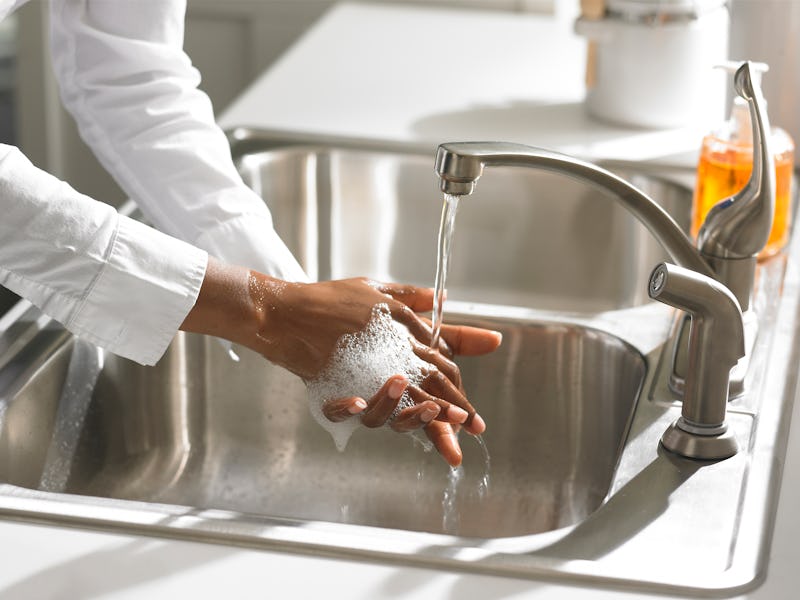The FDA Says Some Antibacterial Soap Is Useless
There is such a thing as too clean.

We are witnessing the dawn of the anti-antibacterial revolution: On Friday, the U.S. Food and Drug Administration issued a decree banning certain antibacterial soaps, claiming that they’re no more useful than regular soap and water and aren’t necessarily safe for long-term daily use.
For decades, consumers were lead to believe that bacteria-free is better, leading to the rise of a multi-million-dollar antiseptic soap industry. But, as the FDA points out, there isn’t actually much scientific evidence to back up the claims of soap makers.
The FDA is cracking down on 19 specific active ingredients commonly found in soap, including triclosan and triclocarban, which are often listed on the labels of soaps like Dial and the dish soap Dawn. After today, these ingredients will be banned; the companies that make them have up to one year to phase them out of their formulas.
Regular soap and water will suffice, says the FDA.
The FDA isn’t just concerned that consumers are needlessly spending more money on products that claim to be healthier than regular soap and water. There’s some evidence that long-term exposure to these ingredients could cause bacteria to grow resistant to antiseptic agents — this is already a mounting problem in the healthcare and agricultural industries — and could even disrupt hormonal cycles.
Advocates for the soap industry, unsurprisingly, have disagreed with the FDA’s claims. In an e-mail to NPR, a spokesman for the American Cleaning Institute acknowledged that washing with antiseptic soap does reduce the risk of infection more than regular soap.
But there’s little chance they’ll get the FDA to overturn their decision, which was actually first proposed in 2013 after initial claims the ingredients were not safe for long-term use.
The FDA’s decision makes us question our obsession with cleanliness, much in the same way the FX show You’re The Worst did, in its season premiere this week, when it asked whether it is actually necessary to wash your legs. As one expert revealed to Inverse, the answer is no; rinsing with water will suffice. How many more of our hygiene standards are based on false assumptions about cleanliness?